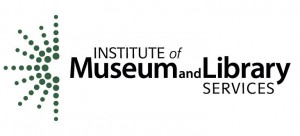As a result of generous grant funding from the Institute of Museum and Library Services’ Laura Bush 21st Century Librarian Program, the “Digital POWRR Peer Assessment Program: Empowering Collective Evaluation and Action” project will enable POWRR to develop an innovative training program and community of practice that will bring together digital preservation specialists and cultural heritage practitioners from under-resourced organizations to collaborate in the preparation of digital preservation self and peer assessments. This project aims to provide practicing librarians and archivists who are struggling to provide ongoing care for their digital collections with a structured opportunity to learn about
digital preservation concepts, as well as the chance to learn about assessment procedures and
put them into action in a supportive environment. The project will utilize partner
organizations (Sustainable Heritage Network, the Midwest Archives Conference, the Association of Hawai’i Archivists, Northwest Archivists, Inc., and Amigos Library Services) who will assist in the recruitment of individuals from among their membership who would benefit the most from this training opportunity. By forming cohorts from within pre-existing communities of practice, it is hoped that participants will have increased feelings of familiarity and will be better positioned to share knowledge gained within this community after the training.
This project will run from August 2021-July 2025, which will allow time for the program to be piloted, and
actively improved in between two separate year-long training phases. The project intends to
train 36 practitioners and six peer facilitators in total. Three cohorts of six participants, each
with a peer facilitator, will work over the course of one year to perform systematic analyses of
each organization’s current stewardship practices, focusing on the creation of achievable goals
and activities. The first half of the training period will be dedicated to preparing for and
performing two rapid self-assessments and one longer, in-depth peer assessment. In the second half of
the program, participants will work with facilitators on setting goals, based on
recommendations set forth in their peer assessments. Cohort members will receive a $3000 stipend as compensation for their time, participation, and the creation of their assessments. They will also receive a small stipend to put towards technology implementation activities. Final case studies and peer assessments will be gathered and published as part of the project’s final white paper. Final results will also be
disseminated via virtual showcase.
This project upskills professionals in multiple ways and on multiple levels. By learning assessment procedures, and by collaborating with peers on their application, participants will be able to employ and actively hone these skills on an ongoing basis. By working closely with a peer, who likely has similar challenges, participants will build and strengthen relationships within existing communities of practice. It also offers the opportunity for cohort facilitators to deepen their own assessment work; to enrich their facilitation skills; to cultivate relationships with one another – and to form their own community of practice as well.
The project is intended to serve as a model that professional organizations may wish to adapt as a service. Project staff will engage in outreach discussions to membership-based organizations who might be potentially interested in running such a program in the future.
Phase 1 cohorts presented a project showcase where members discussed their experiences working with assessment tools and implementing programmatic changes. These showcase events were held on Zoom and were recorded. The recordings are linked below:
- Cohort 1 – April 4th at 3 PM EST
- Cohort 2 – April 26th at 1:30 PM EST
- Cohort 3 – June 6th at 2 PM EST
Recruitment for Phase 2 cohorts has concluded.


